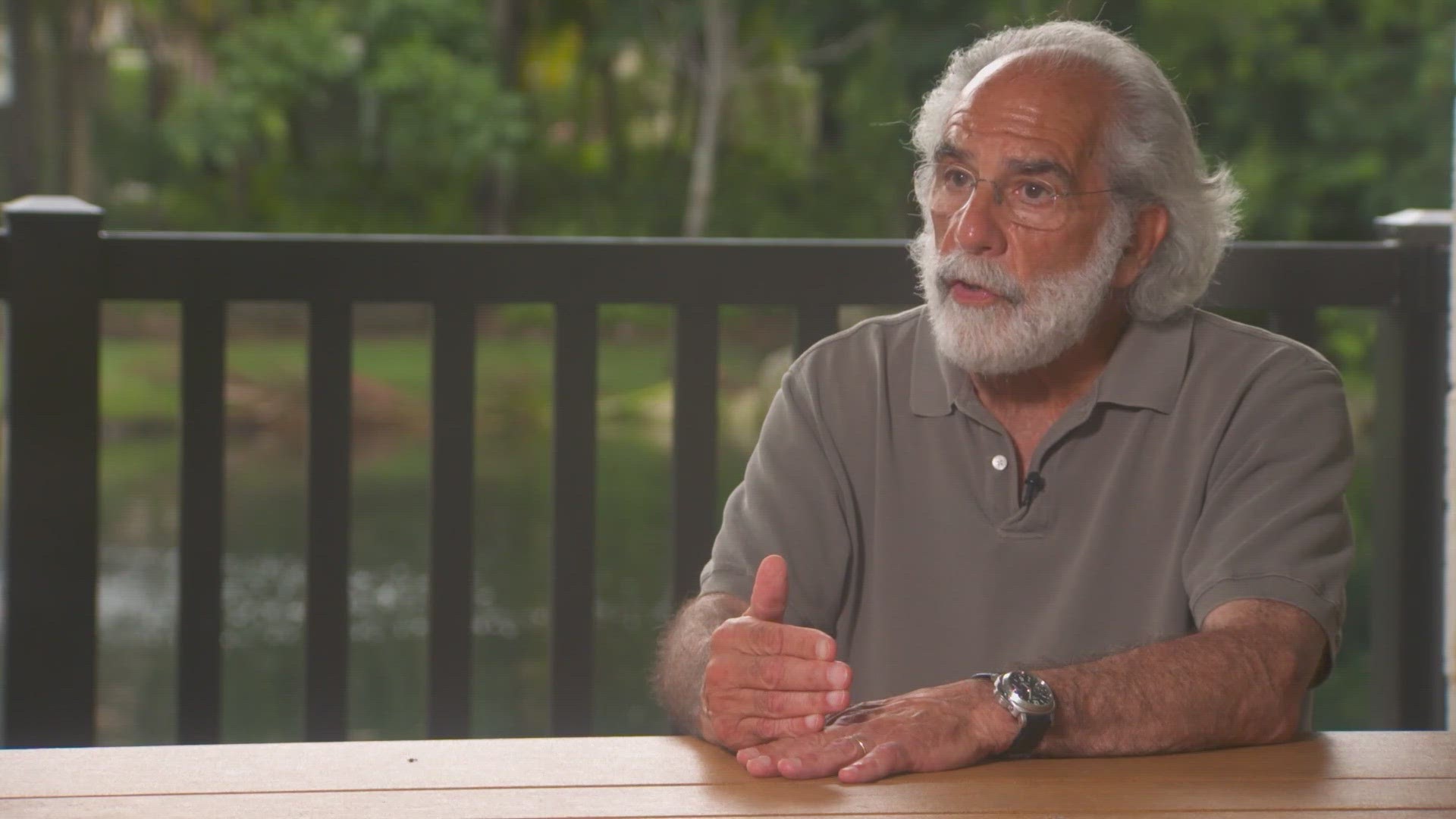MIAMI, Florida — Charles Vinick with the nonprofit Friends of Toki said it is too early to fully assess what Tokitae's legacy will be, but he hoped she will be remembered for her spirit to live, her zest for life and the collaboration she inspired.
He said though her death was a tremendous surprise and horrible in every way, he will remember her not by those final moments but by how she lived before.
"When I was with her throughout all of the past 16 months, this was an animal who progressively became more active and stronger and robust in every way. So what do I think of when I think of her? I think of that," said Vinick, co-founder of Friends with Toki.
TOKITAE'S HEALTH
While Tokitae had significant medical issues over the years, Vinick said her prognosis had been improving. She was swimming robustly in recent weeks and her bloodwork had appeared normal. He said she got significant tactile contact with her trainers, being scratched on the head and doing her exercises, and food quality had improved in recent months.
According to health updates from Friends of Toki and the Miami Seaquarium, she had faced some health issues, including periodic stomach problems and an infection being treated with antibiotics, but did not appear to have severe illness until two days before her death.
"For me, she's an animal with tremendous spirit and it's that spirit that carries on. This isn't a story about a sad whale," Vinick said. "It's a story about a whale who should never, of course, been where she was. That should never have happened. But she figured out how to live there and survive when almost no other captive orca has ever figured that out no matter where they were for so long."
Tokitae's death was unexpected, Vinick said. Two days before, she appeared to have a gastrointestinal issue, and they began treating her. Typically they would give her medication through her food, but she had stopped eating.
"When she stops eating, you have to find other ways to treat her," Vinick said. "In this case, you lower the medical pool of water so people can be around her and you can inject both intravenously and intramuscularly, medication. The veterinarians guide that, her caretakers participate to help the veterinarians do it, but that all seemed to go well."
Vinick said they were preparing to raise the water in the pool and she was not responding in the right way. He said while early information indicates she had renal failure, it is unclear what caused that, and he's hopeful the necropsy will reveal more information.
TOKITAE'S LEGACY
Vinick said Tokitae's lifetime demonstrates the evolution in most people's thinking about keeping wildlife in captivity. He said this was the first time he can remember conservationists working directly with a marine park — a choice some people eschewed, but that he believes was essential to giving Toki a chance to return home to the Salish Sea. He said he's hopeful these types of conversations will continue to improve animal welfare.
"The arc of her story given its 53 years of captivity, the arc of her story is from those days when so many people thought there wasn't anything wrong with capturing a whale. We let it all happen. And it did," Vinick said. "To now, it's no longer accepted — not only to not capture them, the whole industry is changing. Maybe not fast enough for those of us who are here — but it's changing."
Optimally, he'd like to see all marine mammals still held in parks be moved to sanctuaries with higher qualities of life. The industry is changing, though, which he said is part of her legacy, but not all of it.
"There's trainers all over the country — many of whom have objected to what we're trying to do. But they all loved her," Vinick said. "And everyone I've seen loved her. And why is that? It's because of who she was. It's because of the love she allowed them to have, she exhibited for them and she was that special."
NEXT STEPS
Vinick said that while Friends of Toki veterinarians were caregivers, they weren't custodians. Tokitae technically was living under the ownership of the Miami Seaquarium. He said the park was required to send her in for a necropsy, which he is hopeful will reveal more details about what caused the kidney problems.
But the main focus for now, he said, is returning her home.
"The Lummi Nation, other tribal entities, tribal governments, should have an opportunity — and in their minds an obligation and responsibility — to care for her in her death and all of us should be part of that with her because we're all connected to her," Vinick said.
The Lummi Nation's chairman expressed similar sentiments to KING 5.
"People should remember her as she was," Vinick said. "People will point fingers... [but] everyone around her was trying to do everything possible to bring her home and now we need to finish that task and bring her home."

